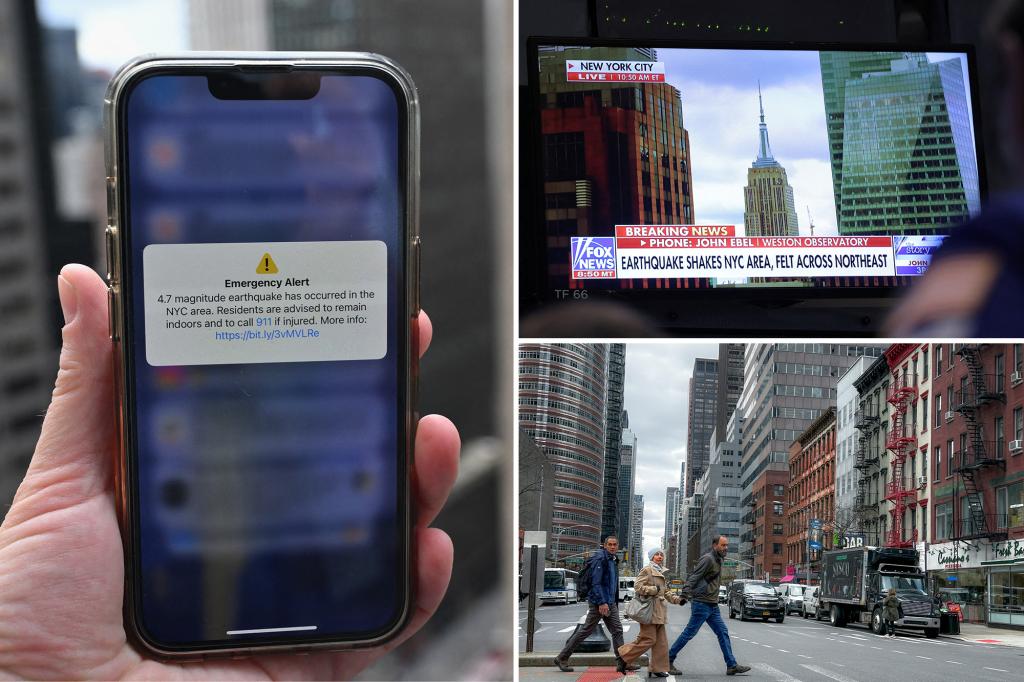Critics were quick to criticize New York City officials after a 4.8 magnitude earthquake rocked the city but it took nearly 25 minutes for an emergency alert to be issued. The quake, which struck near Lebanon, New Jersey, was felt across the tri-state area. However, the emergency alert was not issued until 10:47 a.m., with additional alerts going out in subsequent minutes. Zachary Iscol, head of the city’s Office of Emergency Management, noted that confirmation of the quake was needed before alerting residents, and putting out proper guidance took time.
The city’s alerts advised residents to remain indoors and call 911 if injured, noting that aftershocks may be felt but New Yorkers could continue with their usual activities. Despite the issued alerts, critics were quick to point out the delayed response, with many taking to social media to voice their displeasure. Some criticized the city for sending out an emergency alert 30 minutes after the earthquake occurred, while others joked about the timing of the alert compared to other events. One New Yorker even compared the delayed message to unmuting oneself at the end of a Zoom call.
The delay in sending out the emergency alerts raised concerns about the city’s emergency response preparedness. Some residents felt that if the earthquake had been more severe, the delayed alert could have had more serious consequences. The criticism of the delayed alerts highlighted the importance of timely and efficient communication during emergencies. The incident also prompted questions about the effectiveness of the city’s emergency alert system and the need for improvements to ensure a swift and appropriate response in the future.
The criticism of the delayed emergency alerts came as a surprise to many, as residents expected a faster response from city officials in the event of a significant earthquake. The incident served as a wake-up call for the city to reevaluate its emergency response procedures and communication protocols. It also prompted discussions about the need for better coordination between agencies to ensure that timely and accurate information is disseminated to the public during emergencies.
Moving forward, it is essential for the city to address the shortcomings in its emergency alert system and take steps to improve response times in the event of future emergencies. This incident highlighted the importance of effective communication and coordination in ensuring the safety and well-being of residents during times of crisis. By learning from this experience and implementing necessary changes, the city can better prepare for and respond to emergencies in the future. Ultimately, the delayed response to the earthquake served as a valuable lesson for New York City officials in the importance of timely and efficient emergency communication.


